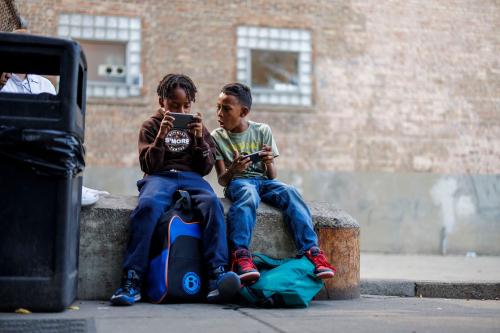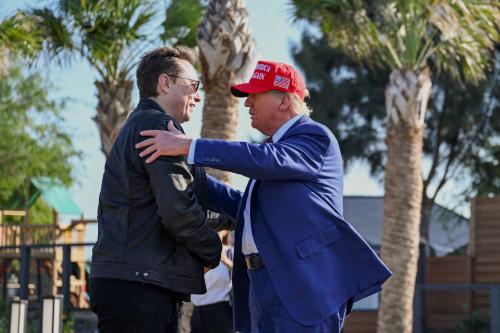• Congress is back in session, and while the big question for the Senate “Gang of Eight” remains will they or won’t they introduce their comprehensive immigration reform legislation this week, there is a long list of items that could still derail reform, including provisions related to agricultural workers, temporary work visas, and Sen. Marco Rubio’s wavering support.
• The recent agreement between the U.S. Chamber of Commerce and the AFL-CIO over a temporary low-skill worker program, the W visa, is still a big deal. Now, the reactions are starting to trickle out. The first industry to lament the visa limits? As reported by Politico’s Anna Palmer, construction. In temporary worker-related news, last week U.S. Citizenship and Immigration Services “suspended adjudication” of the H-2B temporary non-agricultural worker program applications over wage issues.
• Sens. Dianne Feinstein, Orrin Hatch, Marco Rubio, and Michael Bennet are at the helm of a specific piece of the immigration reform puzzle: creating a visa system for a “more permanent agricultural workforce”.
• Ashley Parker of the New York Times details the three potential paths to citizenship in the House’s forthcoming immigration bill. Childhood arrivals (the “Dreamers”) and farm workers would “qualify for an expedited road to legal status” and undocumented immigrants eligible for adjusted status via work or family sponsorship could apply though those channels. Immigrants who do not fall into either of these categories would be subject to a lengthy (upon approval) “provisional legal status.” One item of note for the second category of immigrants would have to return to their country of origin before applying for status. That has not been discussed during this round of debates but could have serious implications; in fact, the AFL-CIO calls this a “nonstarter.” On Sunday’s CNN State of the Union broadcast, Reps. Luis Gutierrez and Mario Diaz-Balart discussed some of the tenets of the House’s legislation, including earned legalization.
• As the chair of the House Judiciary Committee, Bob Goodlatte is a major player in the immigration reform debate. On Wednesday, he hinted that the House may address reform in a piecemeal, rather than comprehensive, approach.
• When Congress wants to increase the number of visas for high-skill workers without increasing the total number of visas issued, the 55,000 annual diversity visas are first on the chopping block. However, the NAACP wants to make sure these visas will stick around. Extended family visas are also a common target. After meeting a preliminary deal with business, the AFL-CIO is partnering with faith and advocacy organizations to make sure they are not cut. Also on the advocacy front, a “Rally for Citizenship” will take place this Wednesday afternoon in front of the U.S. Capitol.
• The usual suspects, including The New York Times, The Los Angeles Times, Bloomberg, The Economist, and the Washington Post, all published immigration-related editorials over the last week. But don’t miss this op-ed from Rep. Raul Labrador, which has gotten some heavy air time.
• An ABC News/Washington Post poll shows support for potential components of immigration reform: 57 percent back a “path to citizenship,” 72 percent support “more high-skill non-U.S. workers,” and 80 percent want to see “increased border security”. A Quinnipiac poll also finds a majority of respondents (59 percent) support a path to citizenship for unauthorized immigrants.
Should be a busy week.
The Brookings Institution is committed to quality, independence, and impact.
We are supported by a diverse array of funders. In line with our values and policies, each Brookings publication represents the sole views of its author(s).



Commentary
This Week in Immigration Reform: Will We Get a Bill Edition
April 8, 2013